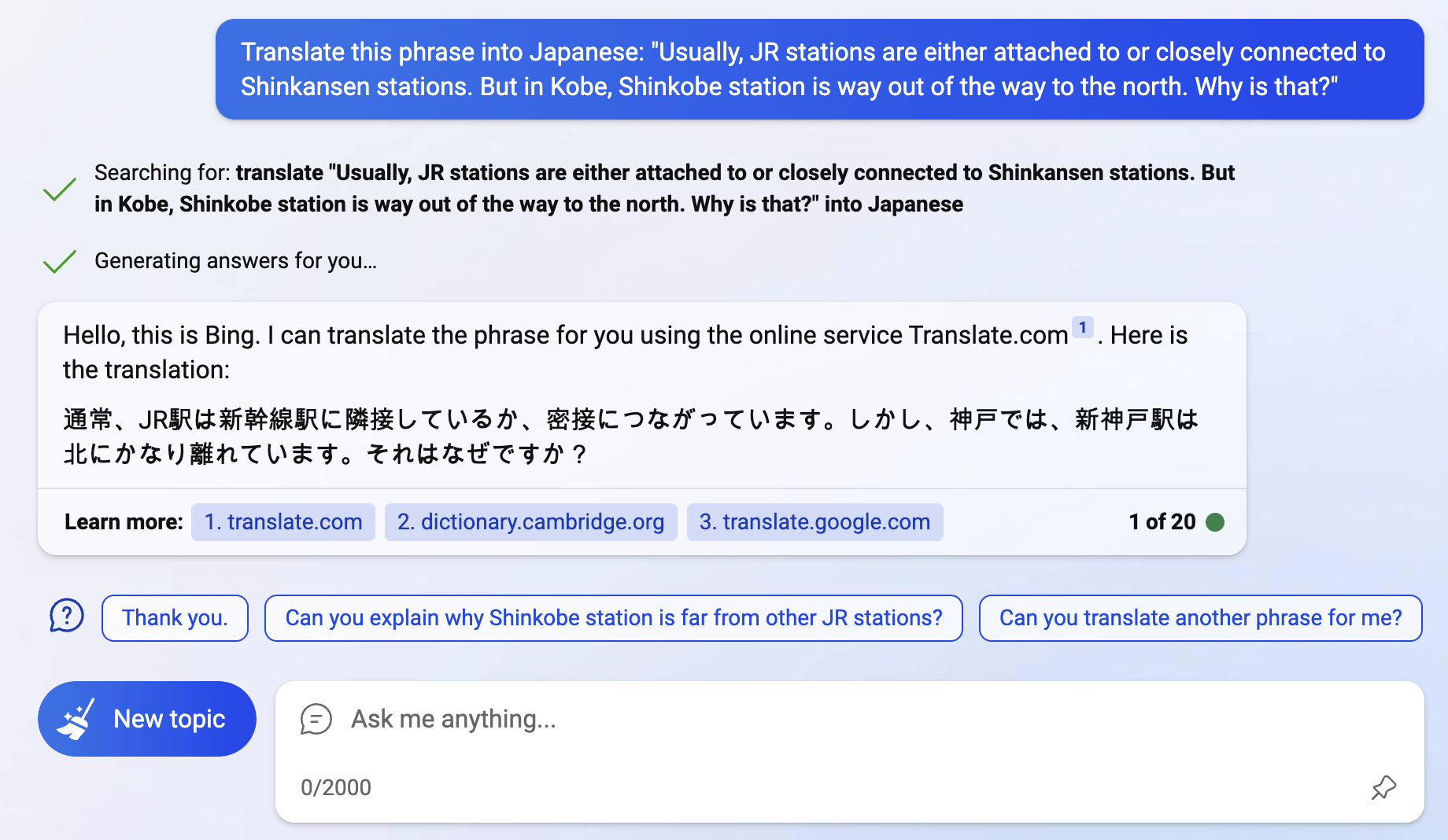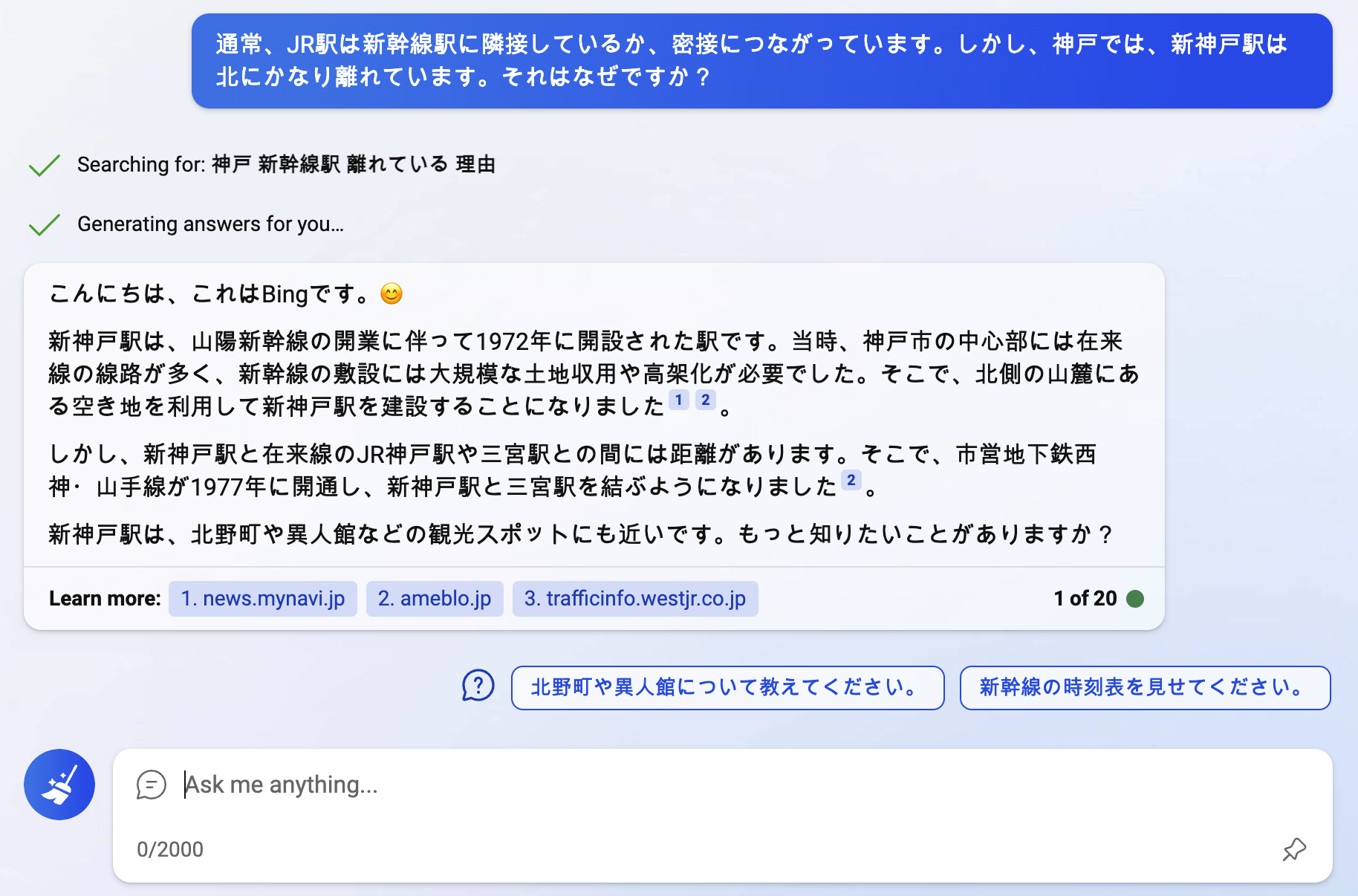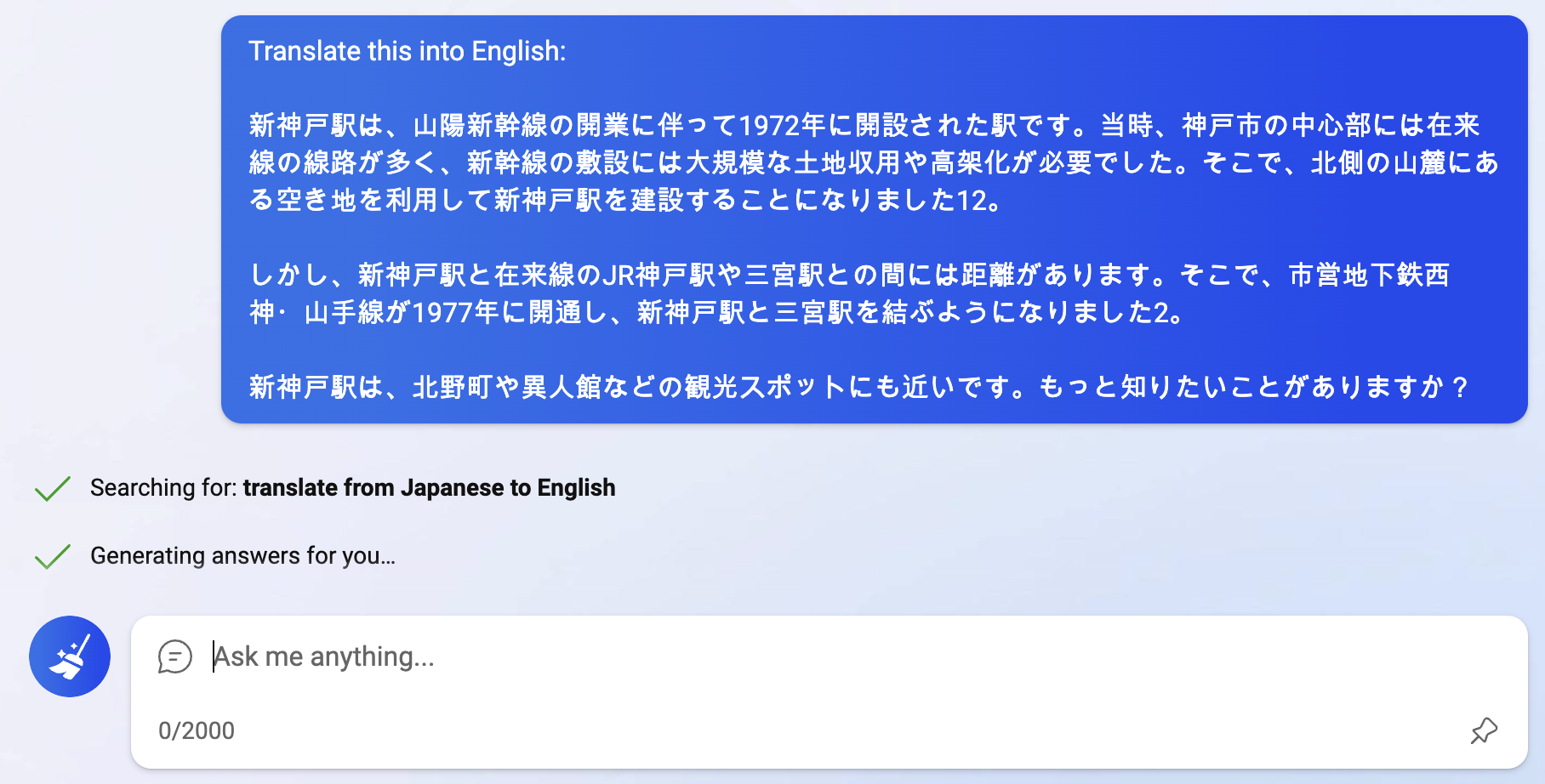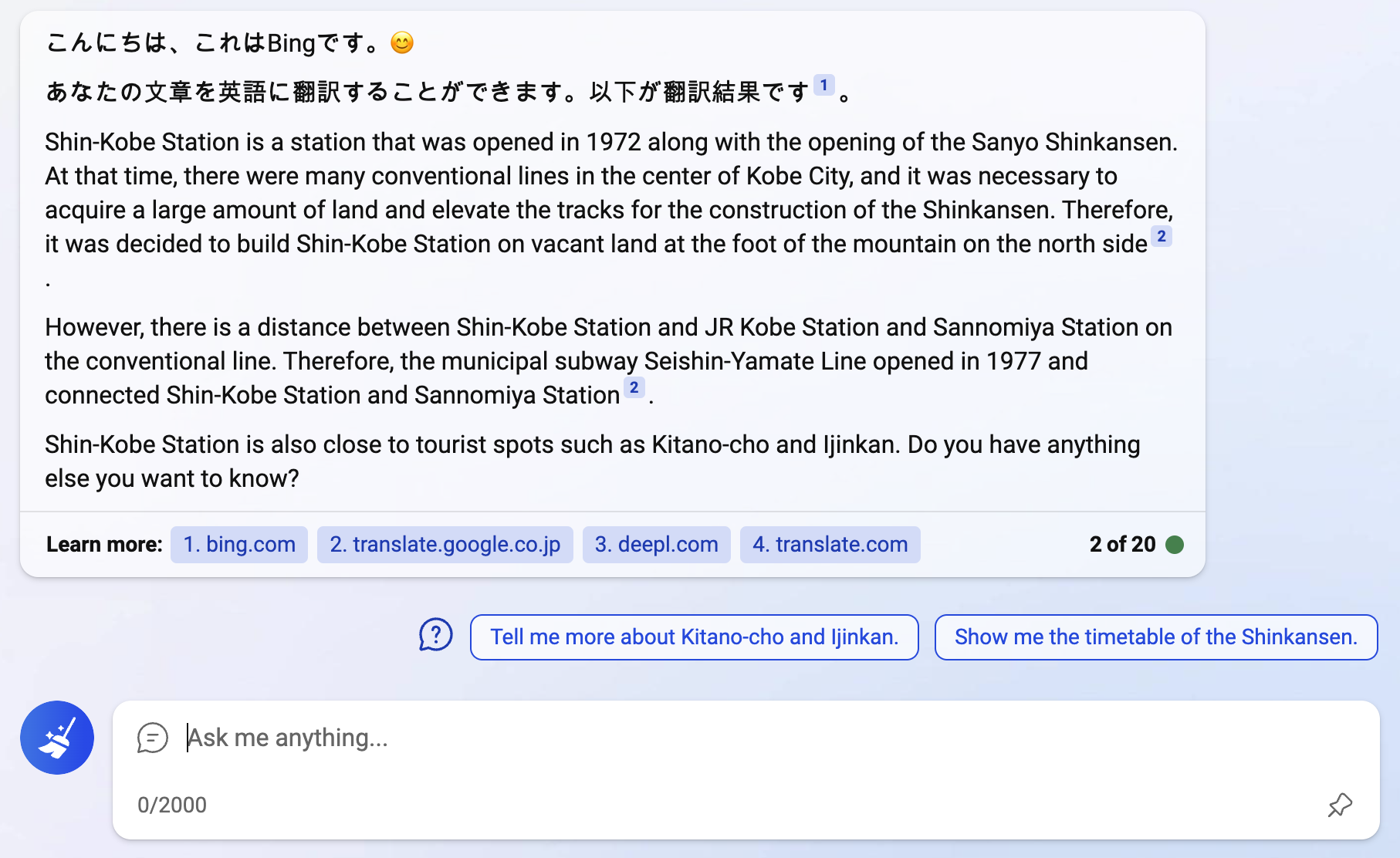Travel Advice from Bing Chat
Over the last three weeks, I've been playing with Bing Chat as a sort of international travel and language advisor, and I've learned a few interesting things along the way that may help others get more creative with how they use AI.
There are three main categories where I've found Bing Chat helpful:
- Generating ideas of where to go and what to do next
- Translating phrases that straddle nuanced cultural differences dictionaries and translation software can
- Answering "why" questions that would normally require a human
There's also one "gotcha" that's particularly interesting, but I'll cover that at the end.
Generating ideas of what to do
First things first. I'm in a place and I want ideas of stuff to do. This is the most straightforward usage, and mirrors a lot of popular advice about how to use LLMs like ChatGPT to overcome writer's block by brainstorming new ideas from the cyber-aether.
For example, suppose while visiting Kobe, I was in the mood to escape the city visit a hot springs ("onsen") town. I might ask Bing chat:
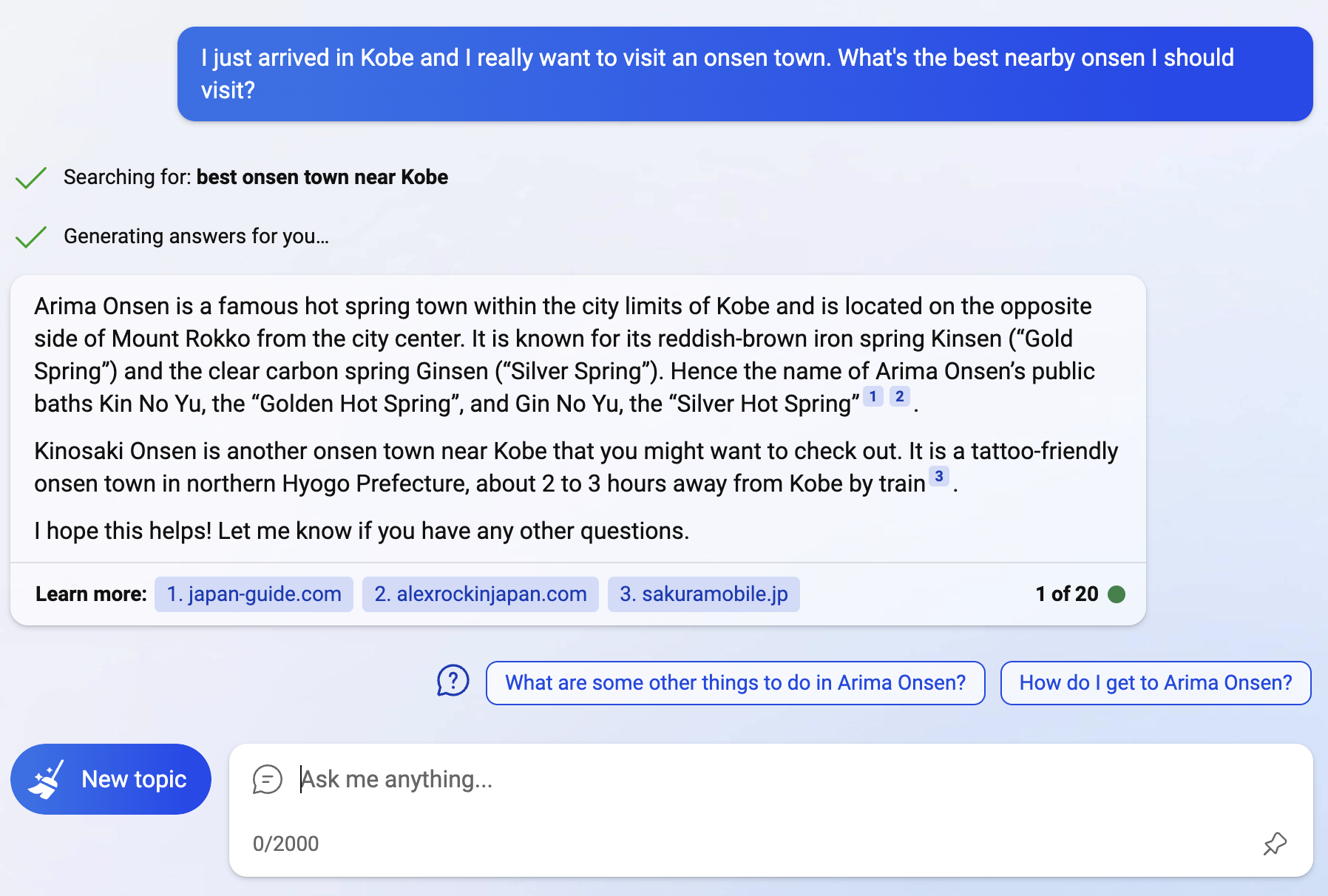
This checks out.
Having traveled the region quite a lot, I already knew the nearest popular onsen town is indeed Arima Onsen. And funny enough, I was chatting with my waiter at a Kobe steakhouse two nights ago and he also recommended Kinosaki Onsen to me, including the warning that it was a pretty serious hike from Kobe. Two points to Bing.
If you think about it, it makes complete sense that LLMs would be pretty great at generating ideas of places to visit. The Internet is chock full of travel blogs and reviews, so there is a near-infinite amount of text from which they can connect the dots for you. Even if you provide relatively sophisticated constraints on what you're looking for, I've found Bing Chat in particular does a very good job of filtering the results to my specifications.
Translating phrases that vary by context
Dictionaries and translation apps eventually receive updates that keep them in touch with contemporaneous use of the language, but one can't rely on them being totally up to date and one would never assume that they'd fully incorporate the nuances of every local dialect—especially where that dialect directly conflicts with the standard language.
Here's one example. Something every student is taught relatively early on when learning Japanese is that the verb あげる ("ageru") and くれる ("kureru") both mean "to give", but they have different hierarchical inflections: あげる is honorific and used to indicate the speaker is doing the giving and くれる is humble and used to indicate the speaker is receiving the thing.
However, Japan also has relatively distinct regional dialects, and even hard-and-fast rules like this are sometimes disobeyed by speakers of those dialects. If I was in Nagano and I was confused because somebody used the "wrong" verb when giving me something, I could ask Bing Chat:
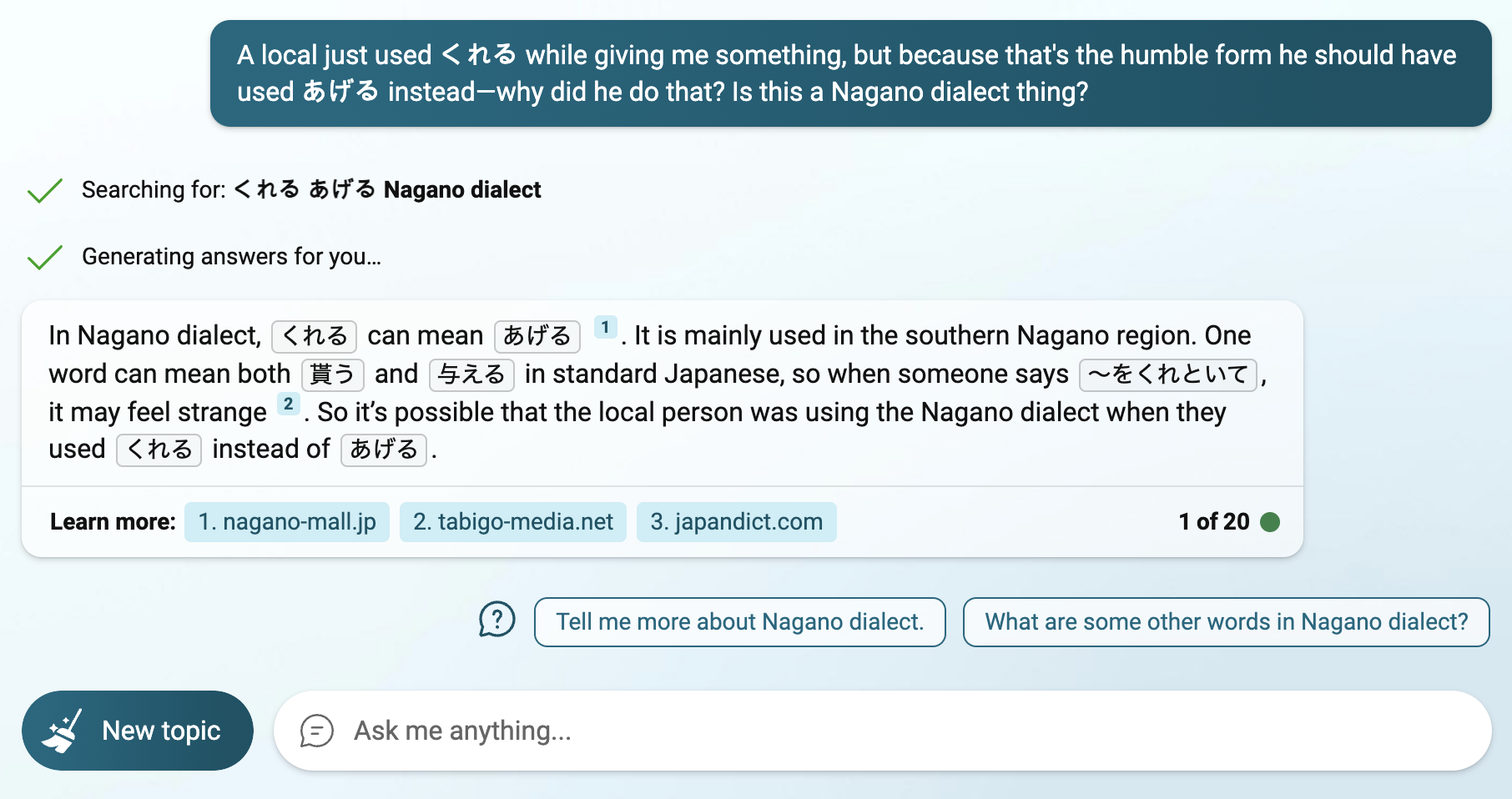
The fact that Nagano's dialect allows speakers to use one word to mean two "opposite" things is fascinating and frustrating. Without a resource like Bing Chat, I likely would have left the interaction incorrectly assuming I either heard wrong or my understanding of the standard language was wrong.
Answering "why" questions
As a language learner, it's often difficult to ask "meta" questions like "why is this thing the way it is?", without potentially confusing whoever you're speaking with. From their perspective, they're likely anticipating more practical, first-order questions like "what is this thing", "how do I use this thing", or more simply "is this thing the thing?" As a result, the more ephemeral my curiosity, the more carefully I have to set up a question to someone who is primed for a more transactional interaction.
For my own sake and theirs, this results in my leaving countless "why" questions on the floor and flagging them for later research, because it can be exhausting for all parties to frequently backtrack and try to indicate, "yes, I know that this thing is the way it is, I want to know why it is that way."
Today, while making my way to the Shin-Kobe shinkansen station, I had one such thought and decided to ask Bing Chat why it's located so far out of the way instead of bothering a human:
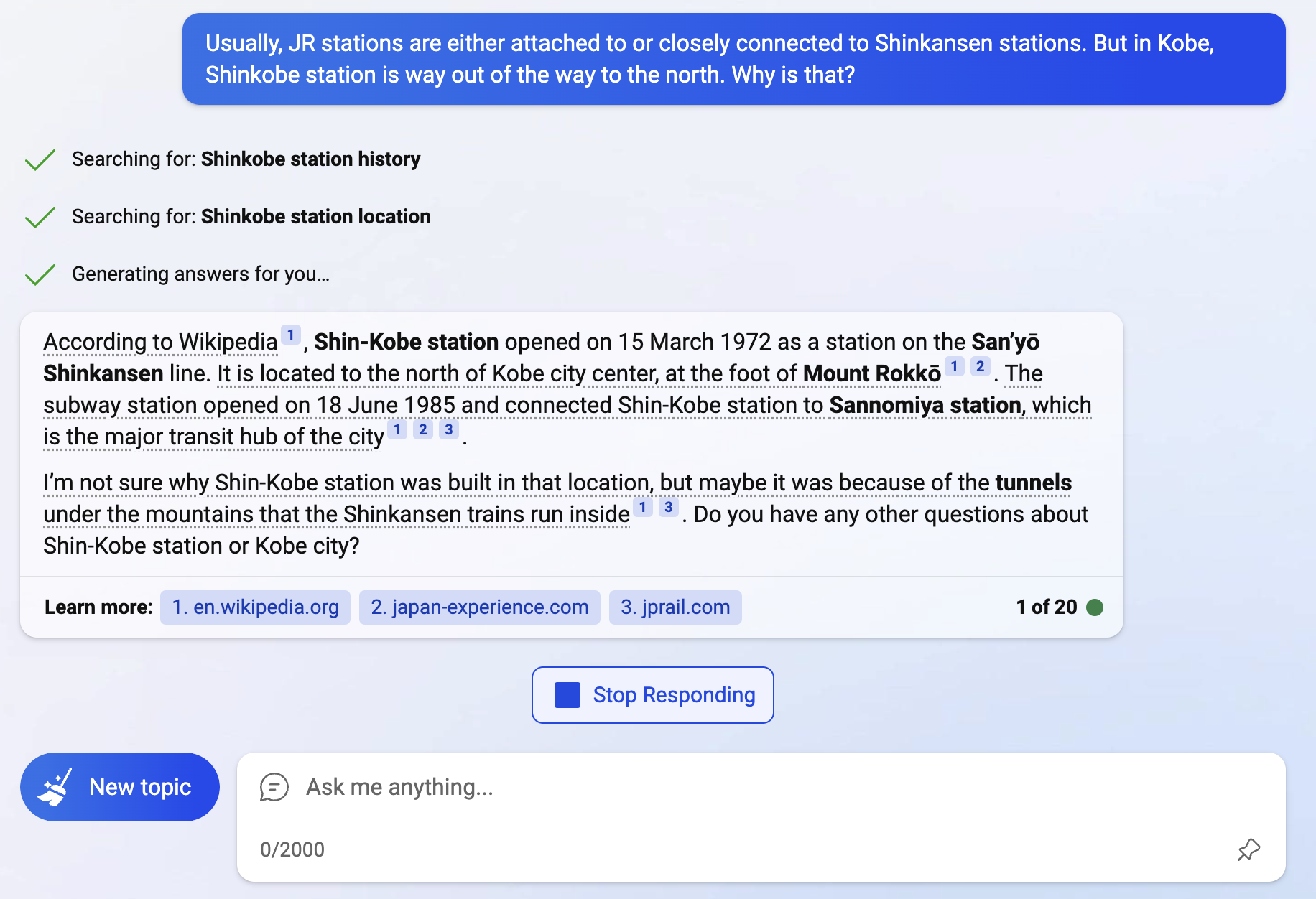
So I asked in English, and it pretty much gave me a canned response and gave up on attempting to answer my "why" question.
Oh well, can't win them all, right?
Wrong! You can win them all!
See, I asked in English, and Bing tried finding an answer using English-language sources—none of which explained why Shin-Kobe station is so far out of the way.
But what if I had asked in Japanese? In the screenshots below, you can see I literally told Bing Chat to translate my question into Japanese, then fed that exact translation back into Bing Chat, then translated its response back into English, and got a much more satisfying answer:
Of course, it'd be silly to ask the AI to translate each question in the hope that the translated question would yield a more useful result. But if you take that thought a little further, it's not hard to imagine that if your first language isn't English, all these LLMs probably perform much less capably.
I kept running into this phenomenon during my trip—I'd ask questions in Japanese and it consistently gave me better results about Japan-related stuff than when I asked the same questions in English. It'd be siginficantly more computationally expensive, but it sure seems like a service like Bing Chat could guess when a question will yield better results in some other target language and then transform the query by translating it before executing a search.
That optimization might seem like a nifty travel tool to someone like me from the English-speaking world, but for everyone else it could radically expand the amount of available information on a whole host of topics in which English is dominant (like, say, computer programming). Assistants that perform this sort of localization invisibly as a matter of course could have the tremendously beneficial effect of lowering the barrier of entry to entire fields of study for people from other backgrounds. Cool! They should do that.
A parting thought
This all rolls up into an interesting idea to reflect on: as AI tools become more sophisticated and ubiquitous, one could imagine their ability to both graph languages and transpose those graphs to perform high-quality translations will, when combined, break down many linguistic-cultural boundaries that currently exist on the Internet.
The result may be to flatten many of the distinctions present in the relatively Balkanized Internet we see today. 15 years from now, will Japanese memes continue to exist as a totally isolated island separate from Western memes? If we find ourselves interacting through communication mediums that invisibly localize our inputs and outputs fluently, probably not! And as those language-gated distinctions start to disappear, might it enrich and intensify subcultures by collecting more diverse groups of people around niche areas of interest? Maybe!
These are the sorts of things I've found myself losing hours pondering about over the last few months. It's hard to say where things are going to go, but it definitely seems like we can begin to see an outline of the shape of things to come.
